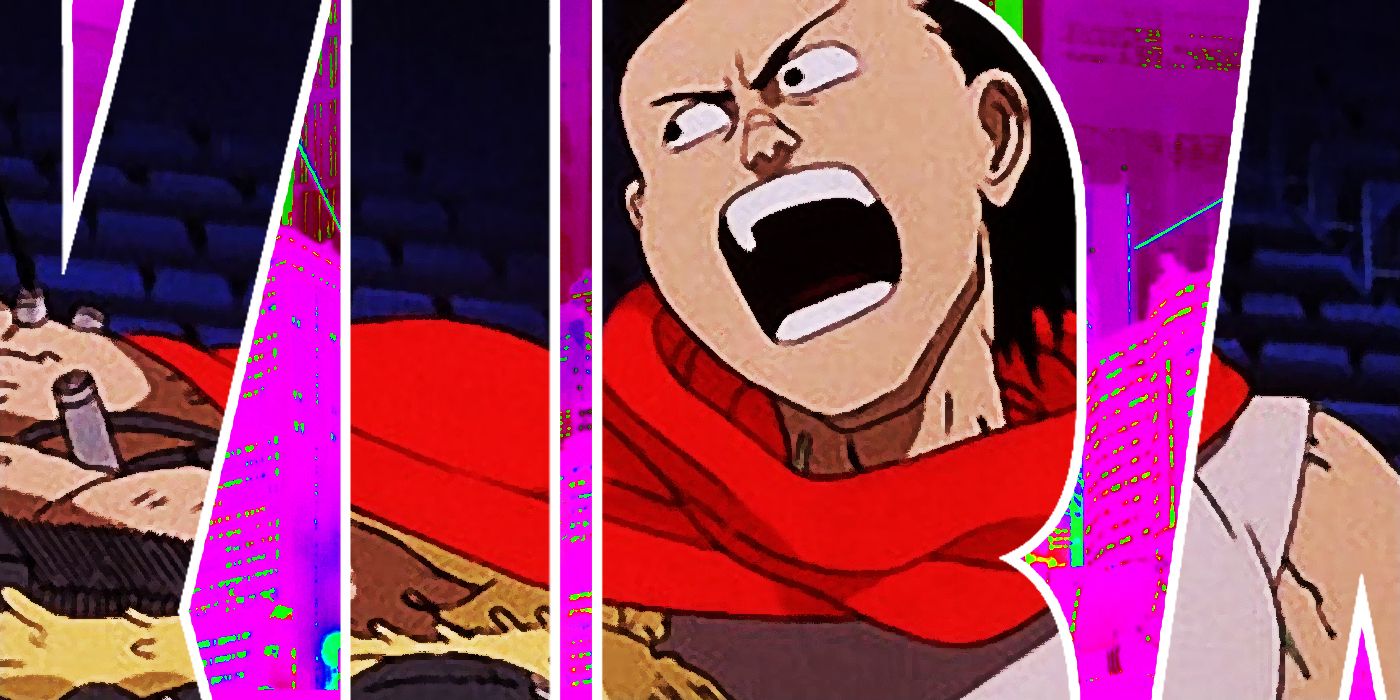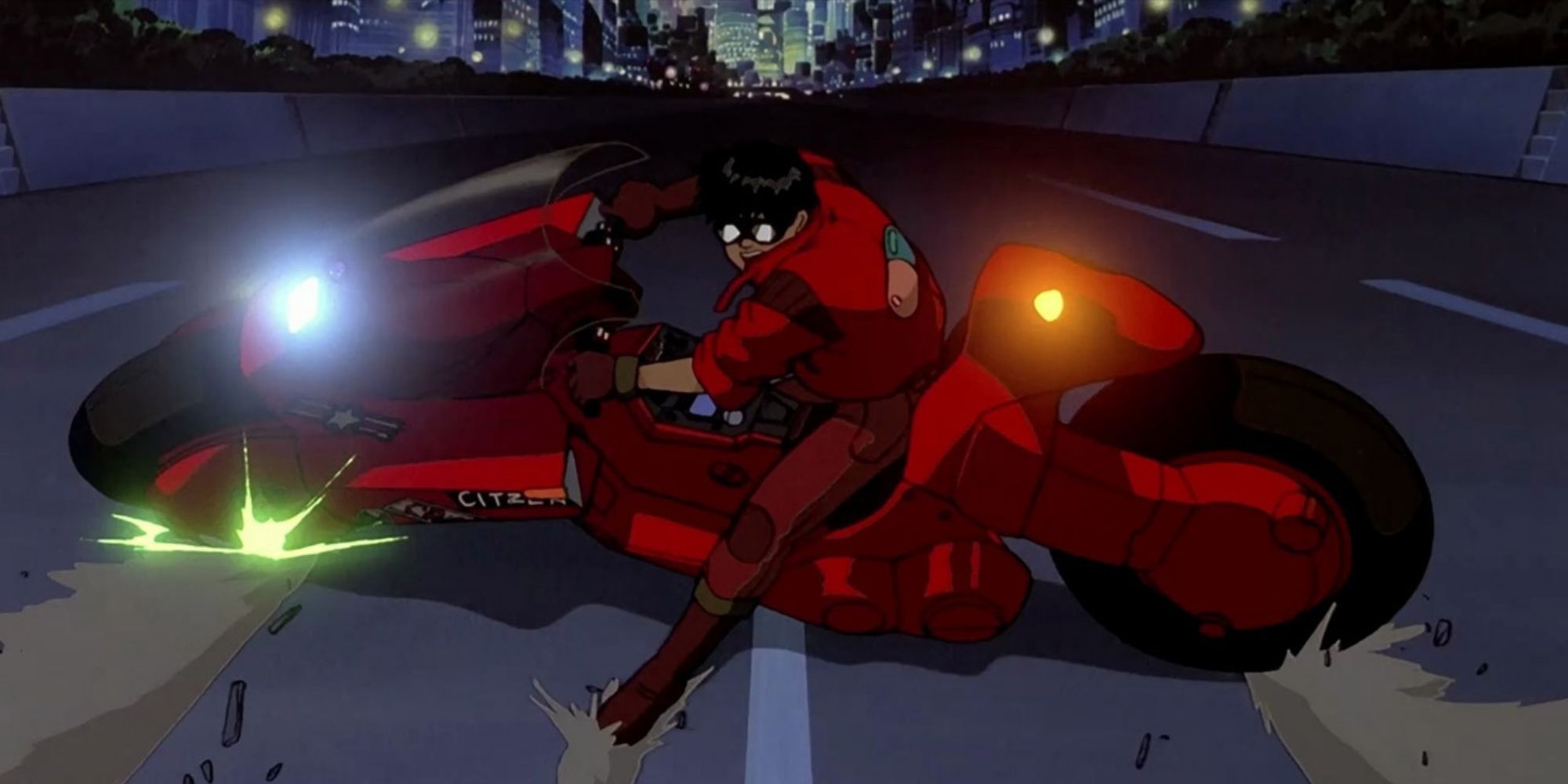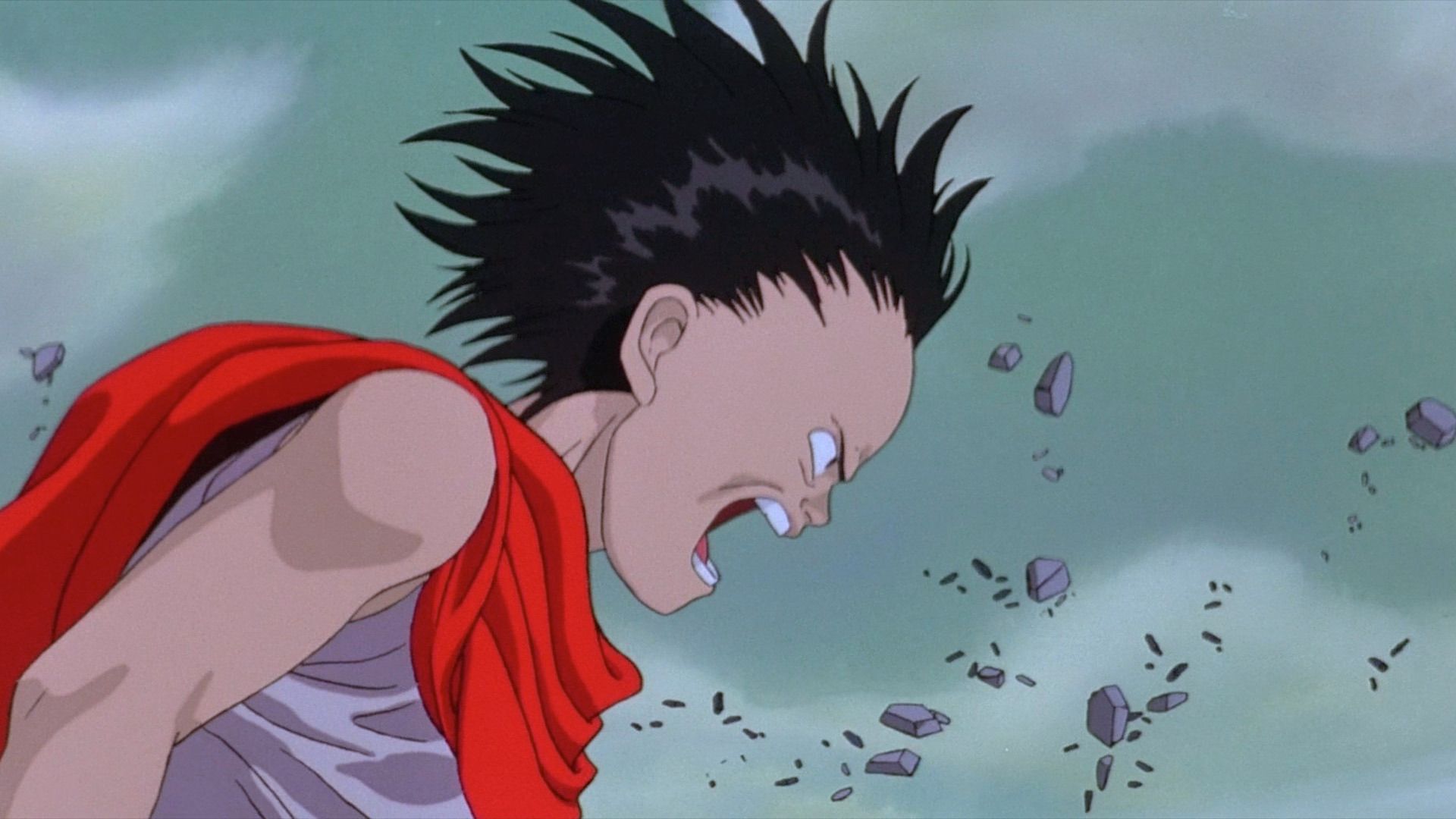Whether you're an anime fanatic or a newcomer to the genre, chances are that you've heard of Akira. The 1988 film draws its inspiration from the manga of the same name by Katsuhiro Otomo, who also directed the film and co-wrote the adaptation. In the years since its debut, Akira has been hailed as the film that opened the doors to a new generation of fans. And it's also served as inspiration for a wide variety of projects - especially the infamous "bike slide" that Shotaro Kaneda (Johnny Yong Bosch) performs, which has been referenced in everything from Batman: The Animated Series to Nope. But one of the most underrated elements is how it looks at the nature of power.
What Is Akira About?
Akira takes place in the aftermath of a third world war that began with the utter destruction of Tokyo. In the newly constructed metropolis of Neo-Tokyo, crime and corruption run rampant, and Kaneda leads his biker gang the Capsules as they struggle for dominance. Kaneda's best friend Tetsuo Shima (Joshua Seth) begins to develop psychic powers after a run-in with the authorities. However, these powers serve as a portent to chaos when Colonel Shikishima (James Lyon) discovers just how strong Tetsuo really is. His power apparently matches that of Akira - the titular psychic who leveled Tokyo during WWIII.
Soon, Tetsuo's powers begin to play havoc with his sanity, as he starts to suffer disturbing hallucinations. The ground cracks open under his feet, sending him tumbling into an abyss. His internal organs begin to spill out of his stomach, and he frantically tries to stuff them back inside himself. And it gets even worse when Shikishima tasks a trio of ESPers to kill him before things get out of hand. And in the most terrifying, a trio of small toys soon gives way to a nightmarish teddy bear that has milk leaking from its seams. These visions are a symptom of Tetsuo's mental instability - but more importantly, they serve as a window into his insecurity complex.
How Resentment Fuels Tetsuo's Rage
Tetsuo is shown to resent Kaneda for excelling over him at everything they do, and it's this resentment that fuels the destructive outburst of his powers. Despite the efforts of his girlfriend Kaori (Michelle Ruff) to pacify him, Tetsuo ultimately loses control over his powers with disturbing results. His flesh begins to bubble and expand, covering everything in its path until Akira is finally revived to stop him. This plight continues a trend in Japanese science fiction movies that found beings possessed of great power causing untold havoc. This trope was pioneered with the original Godzilla movie, as the King of the Monsters was meant to be an allegory for the destruction and trauma that the nuclear attacks on Hiroshima and Nagasaki. Tetsuo is also considered a weapon of mass destruction to the point where Shikisima resorts to all manner of weaponry and warfare to kill him.
Tetsuo's Powers Deconstruct the Superhero Myth
Tetsuo's powers can also be considered a deconstruction of the superhero myth. Many heroes including Spider-Man and Superman are granted incredible powers, whether through birthright or an accident, and attempt to use them for the betterment of mankind. It's also implied that these heroes have a strong force of will to keep themselves from falling apart. Take Peter Parker for example - he's lost a great number of people that are important to him, yet he still continues to fight the good fight as Spider-Man. Conversely, Tetsuo is only obsessed with his own self-preservation and has little regard for the consequences of his actions. He even dons a red cape like Superman, though unlike the Man of Steel's his is tattered and frayed as a result of his deteriorating mental state.
Shikishima himself utilizes a different kind of power - namely that of Japan's armed forces. Having seen firsthand the devastating power that can come from an unchecked psychic he's determined to stop Tetsuo by any means necessary. Those means include utilizing a satellite laser, sending a trio of government-approved psychics on a suicide mission, and even overthrowing the Japanese government. Despite his drastic measures, he's the one person who fully grasps the severity of the situation. And unlike Tetsuo, his power doesn't corrupt him; in fact, it's his kindness to the ESPers that spares his life in the final battle, as they take him back to Neo-Tokyo following the singularity that engulfs Tetsuo.
Many Characters Have Followed in Tetsuo's Footsteps
Given Akira's major influence on other fictional works, many characters have followed in Tetsuo's footsteps when it comes to having great power and no responsibility. Chronicle is a major example, as it slowly shows Andrew Detmer (Dane DeHaan) slipping into sociopathy after he develops telekinetic powers. Like Tetsuo, Andrew is suffering from an insecurity complex as well as the hands of abuse from his father Richard (Michael Kelly), and his fellow classmates. And his psychic powers are just as destructive, as he crumples a car into a ball with a wave of his hands. Other films, including Looper and The Matrix, feature characters struggling with immense mental powers and the destructive results that follow. To borrow a phrase from a previously mentioned web-slinger, it seems that with great power sometimes comes great instability.
The movie ends on a rather ambiguous note, as Tetsuo is teleported into another plane of existence rather than dying. Not much is revealed about this new existence, but Tetsuo sounds very calm, which is a far cry from the raging monster he was in the movie. In the end, the question is: will Tetsuo return to his destructive ways, or will he take this literal second chance at life and build something better? It's a question that longtime fans and first time viewers will both ponder, and hopefully one that Warner Bros. has considered in its long, long, long attempts to get a live-action adapation of Akira off the ground.




